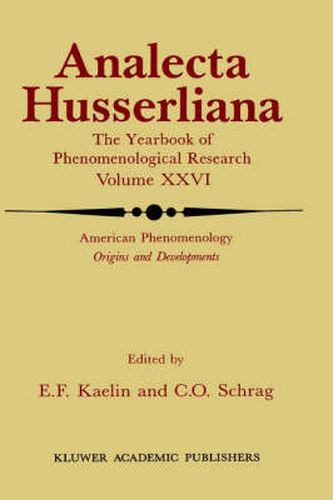Readings Newsletter
Become a Readings Member to make your shopping experience even easier.
Sign in or sign up for free!
You’re not far away from qualifying for FREE standard shipping within Australia
You’ve qualified for FREE standard shipping within Australia
The cart is loading…






This title is printed to order. This book may have been self-published. If so, we cannot guarantee the quality of the content. In the main most books will have gone through the editing process however some may not. We therefore suggest that you be aware of this before ordering this book. If in doubt check either the author or publisher’s details as we are unable to accept any returns unless they are faulty. Please contact us if you have any questions.
THEODORE KISIEL Date of birth: October 30,1930. Place of birth: Brackenridge, Pennsylvania. Date of institution of highest degree: PhD. , Duquesne University, 1962. Academic appointments: University of Dayton; Canisius College; Northwestern University; Duquesne University; Northern Illinois University. I first left the university to pursue a career in metallurgical research and nuclear technology. But I soon found myself drawn back to the uni versity to ‘round out’ an overly specialized education. It was along this path that I was ‘waylaid’ into philosophy by teachers like H. L. Van Breda and Bernard Boelen. The philosophy department at Duquesne University was then (1958-1962) a veritable little Louvain, and the Belgian-Dutch connection exposed me to (among other visiting scholars) Jean Ladriere and Joe Kockelmans, who planted the seeds which eventually led me to the hybrid discipline of a hermeneutics of natural science, and prompted me soon after graduation to make the first of numerous extended visits to Belgium and Germany. The endeavor to learn French and German led me to the task of translating the phenomenological literature bearing especially on natural science and on Heidegger. The talk in the sixties was of a continental divide in philosophy between Europe and the Anglo-American world. But in designing my courses in the philosophy of science, I naturally gravitated to the works of Hanson, Kuhn, Polanyi and Toulmin without at first fully realizing why I felt such a strong kinship with them, beyond their common anti positivism.
$9.00 standard shipping within Australia
FREE standard shipping within Australia for orders over $100.00
Express & International shipping calculated at checkout
This title is printed to order. This book may have been self-published. If so, we cannot guarantee the quality of the content. In the main most books will have gone through the editing process however some may not. We therefore suggest that you be aware of this before ordering this book. If in doubt check either the author or publisher’s details as we are unable to accept any returns unless they are faulty. Please contact us if you have any questions.
THEODORE KISIEL Date of birth: October 30,1930. Place of birth: Brackenridge, Pennsylvania. Date of institution of highest degree: PhD. , Duquesne University, 1962. Academic appointments: University of Dayton; Canisius College; Northwestern University; Duquesne University; Northern Illinois University. I first left the university to pursue a career in metallurgical research and nuclear technology. But I soon found myself drawn back to the uni versity to ‘round out’ an overly specialized education. It was along this path that I was ‘waylaid’ into philosophy by teachers like H. L. Van Breda and Bernard Boelen. The philosophy department at Duquesne University was then (1958-1962) a veritable little Louvain, and the Belgian-Dutch connection exposed me to (among other visiting scholars) Jean Ladriere and Joe Kockelmans, who planted the seeds which eventually led me to the hybrid discipline of a hermeneutics of natural science, and prompted me soon after graduation to make the first of numerous extended visits to Belgium and Germany. The endeavor to learn French and German led me to the task of translating the phenomenological literature bearing especially on natural science and on Heidegger. The talk in the sixties was of a continental divide in philosophy between Europe and the Anglo-American world. But in designing my courses in the philosophy of science, I naturally gravitated to the works of Hanson, Kuhn, Polanyi and Toulmin without at first fully realizing why I felt such a strong kinship with them, beyond their common anti positivism.